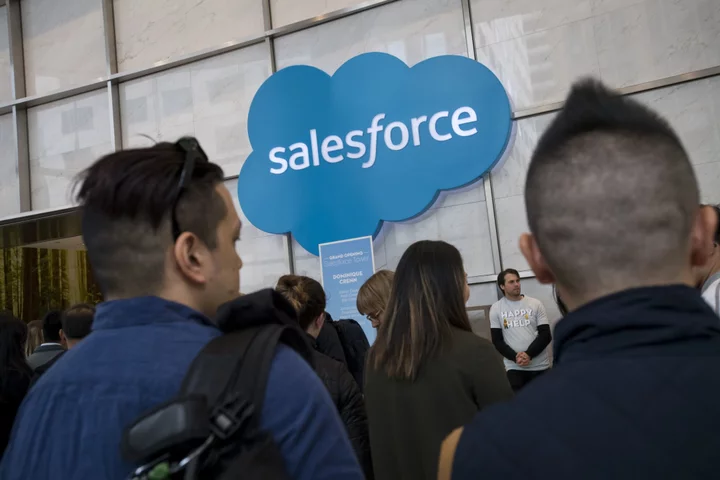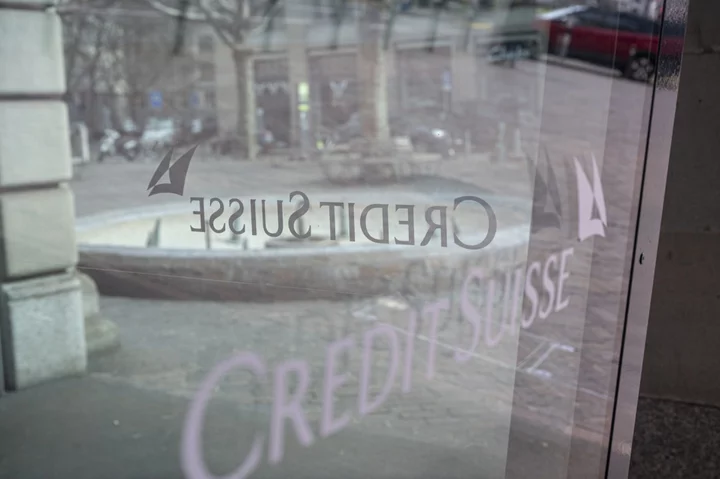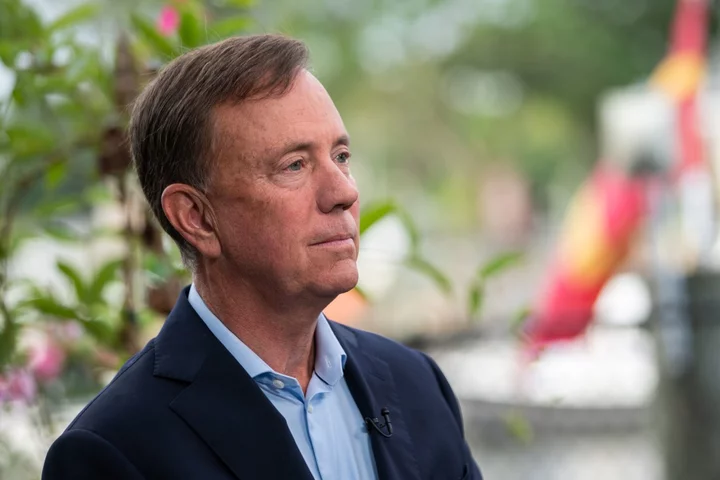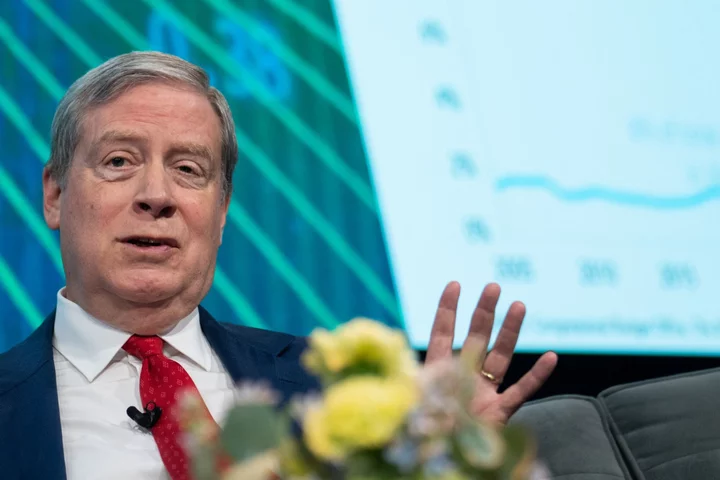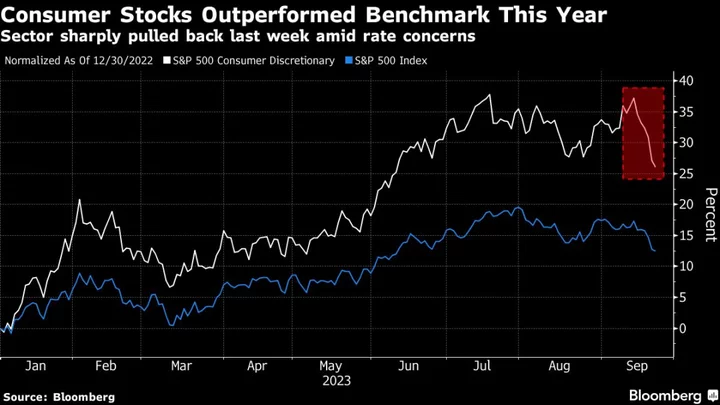Salesforce Inc. was pushed by activist investors earlier this year to boost profits. For the third quarter in a row, Chief Executive Officer Marc Benioff showed he heard the message.
The software giant gave a revenue and profit forecast for the current period that topped analysts’ estimates, signaling progress in the campaign to cut costs and quelling some anxiety about a sales slowdown. The shares jumped about 6% in extended trading.
While Wall Street has been pleased by Salesforce’s profit focus, investors began worrying about lower rates of revenue growth for a company used to gains of 20% to 30% a quarter. The outlook for future sales “will likely pour cold water on fears of a slowdown,” said Anurag Rana, an analyst at Bloomberg Intelligence.
The company took multiple steps in the quarter toward reigniting revenue growth. In June, Salesforce announced a suite of new artificial intelligence features that will cost roughly $7,200 per user each year, and followed in July with the first price increase in seven years. The company is also working to make Slack and Tableau relevant for more of its existing customers. And Salesforce recently promoted Chief Operating Officer Brian Millham to oversee a larger swath of the company and appointed a new chief revenue officer, Miguel Milano.
Sales will be about $8.71 billion in the period ending in October, the company said Wednesday in a statement. Analysts, on average, projected $8.66 billion, according to data compiled by Bloomberg. Current remaining performance obligations, a measure of contracted sales, will grow just more than 11%, meeting analysts’ estimates.
Salesforce also raised its outlook for fiscal-year sales to a high of $34.8 billion, from $34.7 billion, and its operating margin to 30% from 28%, “based on our performance and what we see in the back half of the year,” Benioff said in the statement.
Consulting firm Bain & Co. has finished a review of the business, and the software company is now focused on longer-term profit-boosting initiatives like altering procurement and real estate procedures, Mike Spencer, Salesforce executive vice president of investor relations, said in an interview.
After announcing large job cuts earlier this year, Salesforce has approved a budget for new hiring, particularly in research and development areas like artificial intelligence, Spencer said. Even with those additional employees, the company’s headcount will be 10% lower at the end of the fiscal year, he said. That’s due to continuing trims and performance-based reductions such as one in Ireland earlier this month that are separate from the major workforce cuts announced in January, Spencer said.
Salesforce had 70,456 full-time employees at the end of the fiscal second quarter on July 31, a 10% decline from a year earlier, according to the statement.
In the quarter, revenue increased 11% to $8.6 billion, compared with the $8.53 billion average projected by analysts. Profit, excluding some items, was $2.12 a share. Analysts, on average, estimated $1.90. Operating margin was 31.6%.
Customers continued to hold off on large “transformational deals” in the quarter, Millham said on a conference call after the results were released.
Benioff said new product features, including those powered by artificial intelligence, will be demonstrated at the company’s annual conference in September. The event, called Dreamforce, is held in the company’s hometown of San Francisco, which Benioff said is becoming “the No. 1 AI city in the world” with the growing presence of the emerging industry. Still, Benioff told the San Francisco Chronicle on Tuesday that the conference could move out of the city if it’s affected by homelessness that has plagued San Francisco.
A Goldman Sachs Group Inc. analyst on the conference call Wednesday told Benioff he hoped Dreamforce would stay in San Francisco — and the CEO didn’t respond.
The shares rose to a high of $230.33 in extended trading after closing at $215.04 in New York. While the stock has jumped 62% this year through Wednesday’s close, it has dropped about 4% since Salesforce’s last earnings report on May 31, lagging behind most of its peers.
Most of the activist investors that emerged over the last year have cut their positions in Salesforce following the steep share gain this year, Rishi Jaluria, an analyst at RBC Capital Markets, wrote ahead of the results. During activist volatility earlier in the year, “it seemed like Marc Benioff’s job was on the line,” Pat Walravens, an analyst at JMP Securities, said in an interview with Bloomberg TV. Now after a few good quarters, “he has good things in front of him.”

